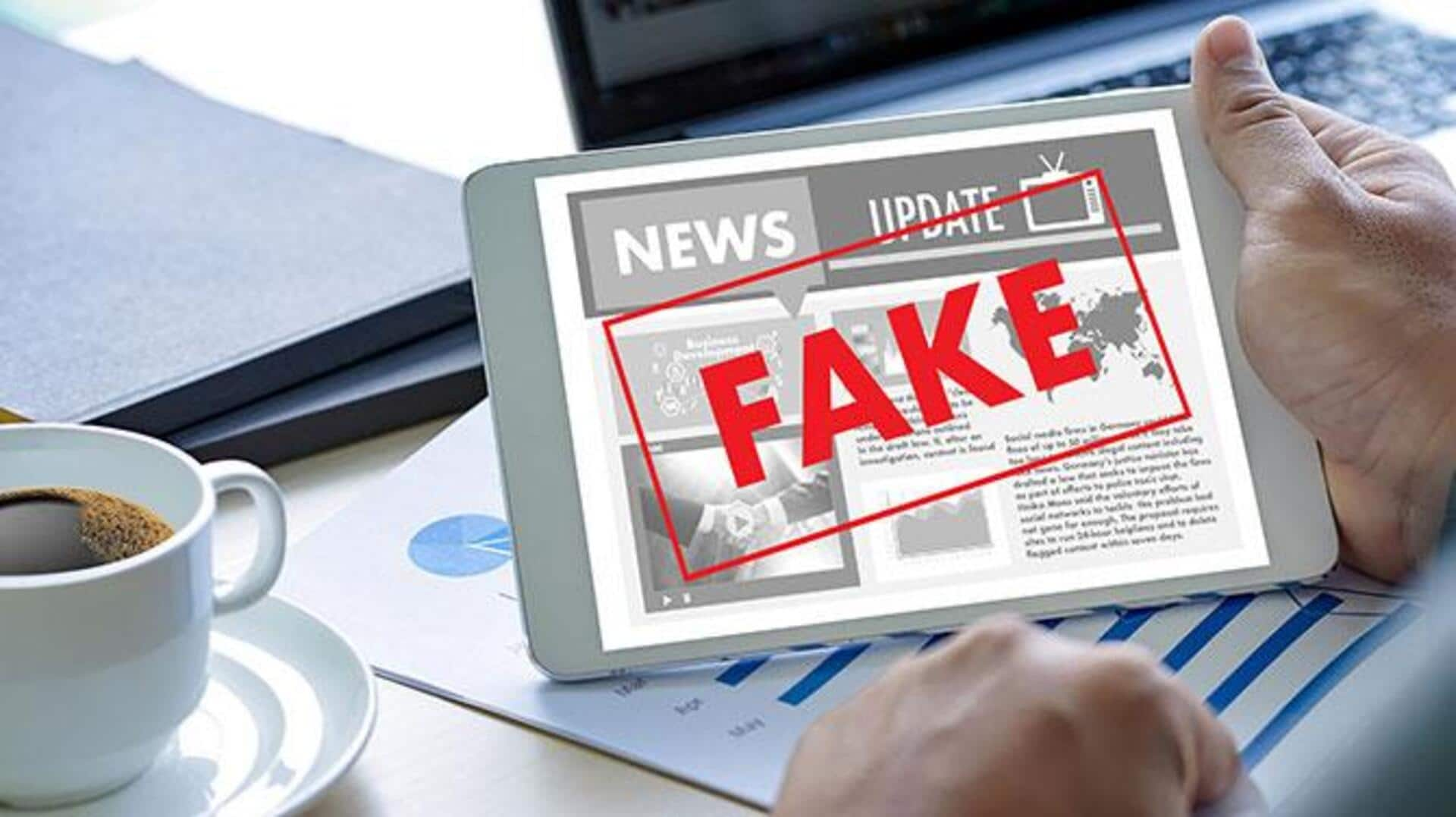
7-year jail, ₹10L fine—Karnataka proposes laws for spreading fake news
What's the story
In a major move to curb the spread of misinformation, the Karnataka government has proposed a new law with stringent penalties for those found guilty of spreading fake news on social media. The proposed legislation, called the Karnataka Misinformation and Fake News (Prohibition) Bill, 2025, is likely to be tabled at the next cabinet meeting. If passed, it could have far-reaching implications for online discourse in India.
Penalties
Jail term, fine for spreading fake news
The proposed bill imposes severe penalties on individuals intentionally sharing false information that endangers public health, safety, peace, or the integrity of elections. Offenders could face up to seven years in prison and a fine of ₹10 lakh or both. Even those outside Karnataka targeting its residents with such content will be covered under this law. The legislation also proposes two to five years' imprisonment and fines for misinformation disrupting public order or electoral processes.
Oversight
A regulatory body will be set up
The bill proposes a complete ban on the spread of fake news on social media. To enforce this, the government plans to set up a regulatory body called the social-media regulatory authority. It will be headed by the Minister for Kannada and Culture as ex-officio Chairperson, one member each from the Legislative Assembly and Council, two representatives from social media companies appointed by the state government, and a senior IAS officer designated as Secretary of Authority.
Content regulation
Authority will also regulate abusive, obscene content
Along with tackling misinformation, the authority will also regulate content that is abusive, obscene, or insulting to women. This includes anti-feminist posts or those that demean women's dignity. The bill also proposes banning content disrespecting Sanatan beliefs and symbols or promoting superstition. To ensure speedy justice in such cases, special courts have been proposed for expeditious trials of these offenses under the new law.
Prosecution
Special public prosecutors to be appointed
The bill also proposes appointing special public prosecutors (at least one) for each special court. This is to ensure that all cases of fake news and misinformation are handled properly. The legislation defines "misinformation" as a false or misleading factual claim made knowingly or with reckless disregard for accuracy. However, it excludes opinions, satire, parody, religious or philosophical expressions, provided an ordinary person wouldn't interpret them as factual assertions.